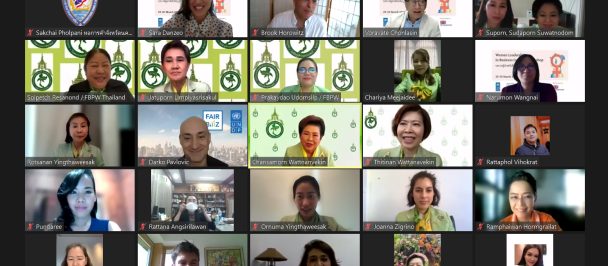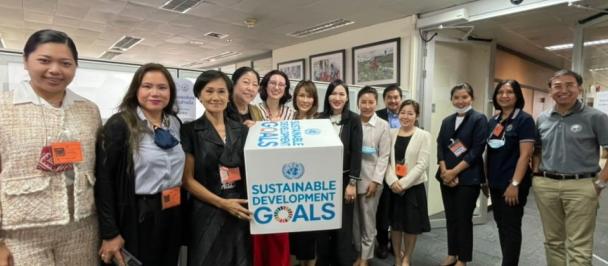Training for Trainers on Skills for Judges in Settling International Trade Disputes. Photo: UNDP Vietnam
A study conducted by the Supreme People’s Court and UNDP shows that, among more than 7,000 trade cases handled by Vietnamese courts in 2018, only 151 cases involved foreign elements. Between 2014 and 2018, only 28 requests for recognition of foreign arbitral awards were settled against the total 45 requests accepted. After more than one year since the Convention on Contracts for the International Sale of Goods became effective in Viet Nam, the courts handled only around 20 cases under the Convention. Challenges in law enforcement in resolving international trade disputes can affect the trust of foreign investors in Viet Nam.
Courts play a key role in ensuring “ease of doing business” in a country, through their fair and effective adjudication of cases. In the Doing Business 2020 report by the World Bank, Vietnam ranked 70 among 190 economies. Despite the slight regression of one spot from its position last year, Vietnam’s overall score improved by 1.44 points, scoring a total of 69.8 points. The areas where Vietnam ranked the best were “Getting credit” and “Paying taxes”, ranking 25 among all the economies. In the “enforcing contracts” indicator, which measures the time and cost for resolving a commercial dispute and the quality of the judicial processes, Vietnam ranks 68.
In the last decades, Vietnam acceded to several United Nations Conventions related to international trade: In 1995, the country ratified the 1958 New York Convention on the recognition and enforcement of foreign arbitral awards; in 2015 the United Nations Convention on Contracts for the International Sale of Goods (CISG). Viet Nam has joined the World Trade Organization in 2007, and successfully negotiated free trade agreements with many countries, namely the Eu-Vietnam Free Trade Agreement (EVFTA) and the Comprehensive and Progressive Agreement for Trans-Pacific Partnership (CPTPP). Viet Nam revised several key laws, including the Commercial Law, the Civil Code and the Civil Procedure Code based on international standards.
Nevertheless, it is of paramount importance to train Vietnam judges and judges-to-be to solve trade-related disputes in accordance with these international instruments. Effective courts are essential for Viet Nam to create an enabling environment for both domestic and international companies, attract more foreign investments and trigger a flourishing business environment by providing efficient dispute resolution and remedy for a range of issues from legal compliance, contracts, employment, and industrial relations, bribery & corruption, human rights violations, consumer protection, and disclosure.
Realizing this need, under the Project “Promoting a Fair Business Environment in ASEAN”, launched in 2018, UNDP has supported the Supreme People’s Court in organizing several workshops on sharing relevant international experiences in settling international trade disputes. UNDP has also worked with the Court Academy to develop a training module for judges on handling international commercial disputes and recognition and enforcement of foreign arbitral awards. In July 2019, the Vice Chief Justice of the Supreme People’s Court cum Director-General of the Court Academy has approved the training module to be published and incorporated into the training program for both students and judges. In November 2019, two pieces of training of trainers were organized in Hanoi and Ho Chi Minh City, using this module as the main course material, with participants from the Supreme People's Court, Court Academy, High courts and provincial courts of more than 20 cities and provinces across Vietnam.
In the long run, these efforts will contribute to enhancing court excellence in Vietnam, strengthening trust in a justice system that operates fairly and effectively, building a business environment that creates opportunities for sustainable growth and lifting people out of poverty.
More information, please kindly contact:
Catherine Phuong
Assistant Resident Representative - Governance and Participation Unit
United Nations Development Programme
Email: catherine.phuong@undp.org
Do Thuy Van
Programme Analyst - Governance and Participation Unit
United Nations Development Programme
Email: do.thuy.van@undp.org

 Locations
Locations




